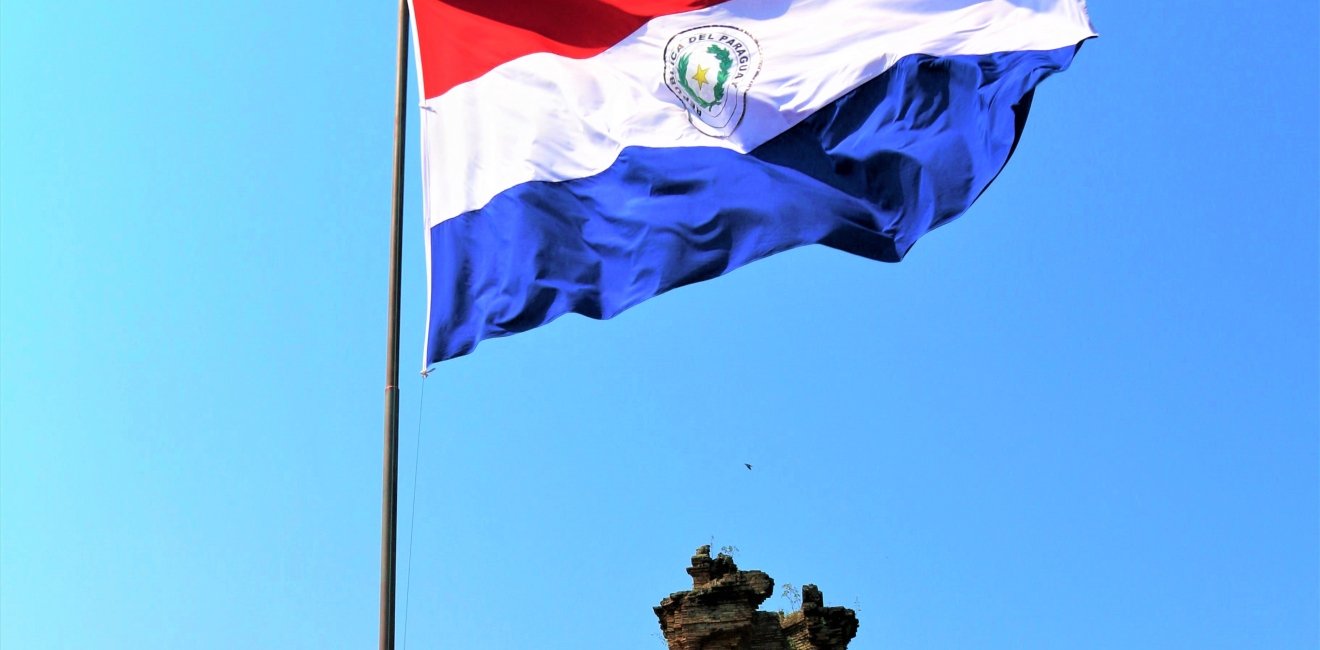
A blog of the Latin America Program
Paraguay is Latin America’s star economy, South America’s sole Taiwan ally, and long a faithful friend to the United States. Yet in early August, Paraguay asked the State Department to “accelerate” the departure of the US ambassador in Asunción.
The unusual tensions reflect Paraguay’s odd political moment. Since taking office a year ago, President Santiago Peña has sought to please two constituencies: Colorado Party technocrats who see Paraguay’s integration into global markets and relationship with Washington as key to growth, and the party’s leader, former President Horacio Cartes, one of Paraguay’s wealthiest businessmen and a target of US sanctions.
Peña seems more at ease with the technocrats. But it was Cartes who, after leaving office in 2018, handpicked Peña, his former finance minister, to run for president as the candidate of Cartes’s conservative Colorado Party faction, Honor Colorado.
That balancing act has complicated the normally automatic friendship between the United States and Paraguay. In January 2023, the Treasury Department’s Office of Foreign Assets Control sanctioned Cartes for “significant corruption,” allegations he denies. Earlier this month, it sanctioned Cartes’s former tobacco company, Tabesa, alleging that the firm continues to channel millions of dollars to Cartes.
The sanctions on Tabesa appeared to trigger the Paraguayan government’s request to expedite the departure of US Ambassador Marc Ostfield. The ambassador’s tenure was already nearing its end; in July, President Biden nominated career diplomat Gabriel Escobar as his replacement. In any event, Cartes will remain a third wheel in this important US relationship in Latin America.
In any event, Cartes will remain a third wheel in this important US relationship in Latin America.”
Before his administration’s recent retaliation against “La Embajada,” Peña made multiple trips to the United States as president, including to meet with National Security Adviser Jake Sullivan and SOUTHCOM Commander Laura Richardson. He has expressed interest in stronger security ties to help combat transnational organized crime.
But the scale could tip the other way. Peña’s cabinet chief, Lea Giménez, resigned on August 15, leaving the president without his strongest technocratic ally. In July, the Senate passed legislation to impose stringent transparency requirements on civil society organizations that critics fear will muzzle voices critical of the government. Earlier this year, Honor Colorado lawmakers impeached vocal opposition Senator Kattya González.
Lacking political capital of his own, Peña is struggling to escape Cartes’s shadow. So far, Peña has opted to steer clear of the Colorado-controlled Congress, focusing on marketing Paraguay to foreign investors in frequent overseas trips. Overdue reforms to key institutions such as the judiciary are on hold, despite persistent investor anxiety over corruption.
Peña still has accomplishments to show. Late last year, he oversaw an operation to restore order to Paraguay’s sprawling Tacumbú prison, a de facto headquarters for local gangs and Brazilian cartels. In May, Paraguay struck a deal with Brazil to raise electricity rates at the binational Itaipú dam, increasing revenue from Paraguayan power exports. Overall fiscal revenue is also up, and the International Monetary Fund expects Paraguay to again outperform the region this year, with 3.8% GDP growth.
Paraguay’s Ministry of Economy and Finance earned another notch in its belt in July, when Moody’s awarded Paraguay investment grade rating. That was recognition of prudent macroeconomic policies implemented by successive governments, which Peña hopes to transform into increased foreign investment and jobs and to diversify the economy.
Even as Peña modernizes parts of Paraguay’s economy, Paraguay’s old political machine and compromised criminal justice system remains largely in place.”
But even as Peña modernizes parts of Paraguay’s economy, Paraguay’s old political machine and compromised criminal justice system remains largely in place. That has consequences for growth and Paraguay’s foreign relationships.
Fears of corruption and clientelism shadow Peña’s roadshow, sapping foreign investment that otherwise might pile into a country that offers fertile soil, clean power, low taxes, stable public policy, and a youthful workforce.
Meanwhile, the red lines that hem in Peña’s reform agenda also color Paraguay’s international ties. Regional partners, including Washington, are eager to see Paraguay strengthen its rule of law to cooperate in the fight against transnational criminal groups that use the country as a trafficking corridor. Paraguay could also serve as a nearshoring option for US firms eager to reduce their dependency on China.
Much of that international agenda, however, lives in a state of suspended animation, as Peña navigates plenty of political constraints at home.
Author


Latin America Program
The Wilson Center’s prestigious Latin America Program provides non-partisan expertise to a broad community of decision makers in the United States and Latin America on critical policy issues facing the Hemisphere. The Program provides insightful and actionable research for policymakers, private sector leaders, journalists, and public intellectuals in the United States and Latin America. To bridge the gap between scholarship and policy action, it fosters new inquiry, sponsors high-level public and private meetings among multiple stakeholders, and explores policy options to improve outcomes for citizens throughout the Americas. Drawing on the Wilson Center’s strength as the nation’s key non-partisan policy forum, the Program serves as a trusted source of analysis and a vital point of contact between the worlds of scholarship and action. Read more

Explore More in Weekly Asado
Browse Weekly Asado
Dengue Haunts South America’s Summers

Lessons from Costa Rica’s Economic Transformation

Women and Latin America’s Digital Revolution

